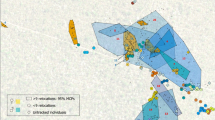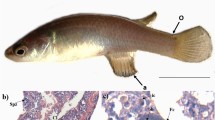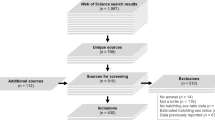Abstract
IN a previous letter (NATURE, April 4, 1925) a brief account was given of an attempt to break the annual reproductive rhythm in the Junco (Junco hyamelis) and to induce premature recrudescence of the gonads in the middle of the winter. It was suggested that migration might be dependent on the production of a hormone by the organs whilst in a certain stage of regeneration. Thanks to a research grant from the Royal Society, I have this winter been able to repeat and extend my earlier investigations. Nearly two hundred Juncos were trapped on their southward migration in the autumn and divided, as before, between two aviaries. The experimental one has been artificially lit since Oct. 1, beginning on the first day with 5 minutes after darkness, 10 on the second, 15 on the third, and so on. The controls got no artificial light. Their day was therefore decreasing, while that of the experimentals was increasing artificially at about the same rate as it would have been normally in1 the spring. Neither aviary is heated.
This is a preview of subscription content, access via your institution
Access options
Subscribe to this journal
Receive 51 print issues and online access
$199.00 per year
only $3.90 per issue
Buy this article
- Purchase on Springer Link
- Instant access to full article PDF
Prices may be subject to local taxes which are calculated during checkout
Similar content being viewed by others
Author information
Authors and Affiliations
Rights and permissions
About this article
Cite this article
ROWAN, W. Migration and Reproductive Rhythm in Birds. Nature 119, 351–352 (1927). https://doi.org/10.1038/119351c0
Issue Date:
DOI: https://doi.org/10.1038/119351c0
This article is cited by
-
The art of growing old: environmental manipulation, physiological rhythms, and the advent of Microcebus murinus as a primate model of aging
History and Philosophy of the Life Sciences (2020)
Comments
By submitting a comment you agree to abide by our Terms and Community Guidelines. If you find something abusive or that does not comply with our terms or guidelines please flag it as inappropriate.



